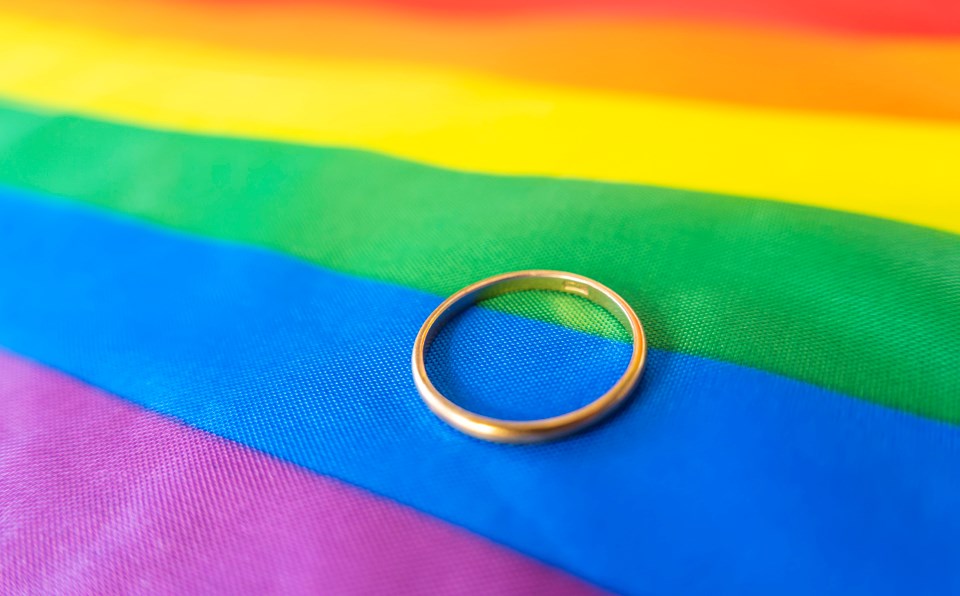A woman who married her same-sex partner in Burnaby 11 years ago ran into a "legal bind" after trying to get a divorce without the consent of her ex last year.
The woman, identified in a recent B.C. Supreme Court ruling as H.Y.C., and her partner, M.K.H., married in Canada because Hong Kong, where they lived, didn't recognize same-sex marriage.
Because Hong Kong still doesn't recognize same-sex marriage, however, H.Y.C. couldn't get a divorce there either after the couple stopped living together in July 2021, according to the ruling.
"Non-resident spouses married in Canada who reside in a state where they cannot obtain a divorce find themselves in a legal bind of being unable to obtain a divorce," B.C. Supreme Court Justice David Jones said in the ruling.
And when H.Y.C. applied to the B.C. court last October, she was rejected here too.
That's because B.C. rules require a person applying for a non-consent divorce to have "a certified copy of an order from a court in the jurisdiction where one of the spouses resides" declaring the other spouse is incapable of making decisions about her marriage because of a mental disability; is unreasonably withholding consent; or can't be found.
Because both women live in Hong Kong, which won't issue the order because it doesn't recognize same-sex marriage, H.Y.K. is stuck, according to the ruling.
Jones noted there was a "discrepancy" between the B.C. rules and the Civil Marriage Act, the federal legislation, which legalized same-sex marriage across Canada in 2005.
Since an amendment in 2013, the federal law has allowed for the required order to come from a Canadian court, putting B.C.'s rules at odds with the Civil Marriage Act.
But Jones ultimately granted H.Y.C.'s divorce, saying H.Y.C. had fulfilled the legal requirements under the federal law despite not meeting the B.C. requirements.
Jones said courts should "favour harmonious interpretations of federal and provincial legislation" and that the "context" of the Civil Marriage Act is important for interpreting the B.C. rules.
"While Parliament saw the importance of allowing same-sex couples to legally marry civilly, it also recognized that same-sex couples may also need access to legal civil divorces," Jones said, quoting an earlier case.
Jones noted efforts H.Y.C. had made to contact her ex and get consent for the divorce, including sending WhatsApp messages, emails, phone calls and sliding paperwork under the door of her residence.
She got no response, and Jones ruled her spouse was "unreasonably" withholding her consent.
Their divorce became effective on the date of Jones’s ruling, Oct. 22.
Follow Cornelia Naylor on X/Twitter @CorNaylor
Email [email protected]



